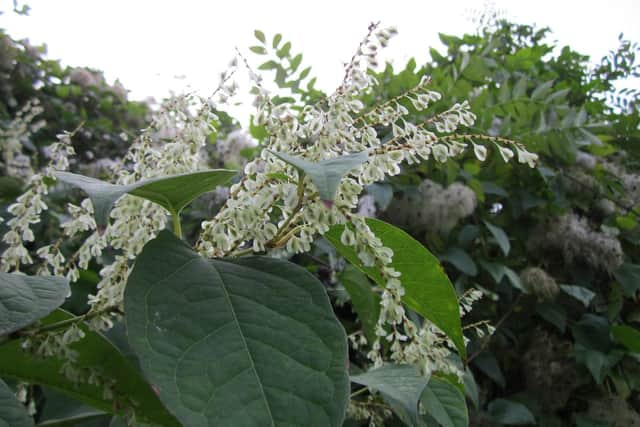Nottinghamshire gardeners could face a £5,000 fine if they make one simple mistake when disposing of their garden waste
and live on Freeview channel 276
After weeding flowers beds, trimming hedges and mowing the lawn it’s common to get rid of cuttings in a brown or green bin, or with a trip to the tip.
But experts say that people must be extremely careful with what they are chucking away amid fears it might inadvertently include the roots of invasive plants, which spread like crazy and then wreak havoc to property.
Advertisement
Hide AdAdvertisement
Hide AdPaul Hampson, chief executive of CEL Solicitors, said: “Gardening is a much-loved hobby throughout the summer months.


“But unassuming homeowners might find themselves slapped with a steep fine if they unknowingly spread an invasive plant such as Japanese knotweed.
“This can have severe consequences, not only for the environment but for your wallet too if you get slapped with a hefty fine.
“It’s important to know the telltale signs of Japanese knotweed, from its bamboo-like canes to dark green or red leaves.”
Advertisement
Hide AdAdvertisement
Hide AdJapanese knotweed, also known as Reynoutria japonica, is a part of the buckwheat and knotweed family and originates in East Asia.
It spreads by direct growth of its root, known as rhizome, and through fragments forming a new plant.
Its appearance can change during the year, starting with red or purple shoots in the spring before changing to dark green bamboo-like canes.
But millions of Brits don't realise the damage it can do.
Its mere presence can knock thousands of pounds off the value of property, while a recent report revealed Japanese knotweed and other invasive plants cost the UK economy £4 billion.
Advertisement
Hide AdAdvertisement
Hide AdMr Hampson continued: “Many people don’t realise that it’s illegal to dispose of Japanese knotweed with household waste.
“You could face a fine of up to £5,000 or be sent to prison for up to two years if you allow contaminated soil or plant material from any waste you transfer to spread into the wild.
“This might not even be on purpose, as a new Japanese knotweed plant can grow from rhizome fragments as small as one centimetre.
"So people could be doing it without even noticing.
“Gardeners may also not be aware of the plant’s appearance and therefore dispose of it without knowing its capabilities.”
Advertisement
Hide AdAdvertisement
Hide AdIf you find Japanese knotweed on your property, it’s advised to seek immediate help from experts to identify the scale of the problem.
It’s a highly invasive plant that can cause significant damage to property and the environment so you should take steps to remove it safely and legally.
Experts warn not to attempt to remove Japanese knotweed yourself, as this can be dangerous and could spread the plant even further, while even the soil the plant is in can cause a spread.
Mr Hampson added: “There are specialists that can remove Japanese knotweed for you.
Advertisement
Hide AdAdvertisement
Hide Ad"It’s also advisable to seek legal support to recover removal costs from the party at fault.
“This could be the owners of neighbouring land who allowed it to encroach on your property, the previous property owner or surveyor who failed to disclose its presence.”